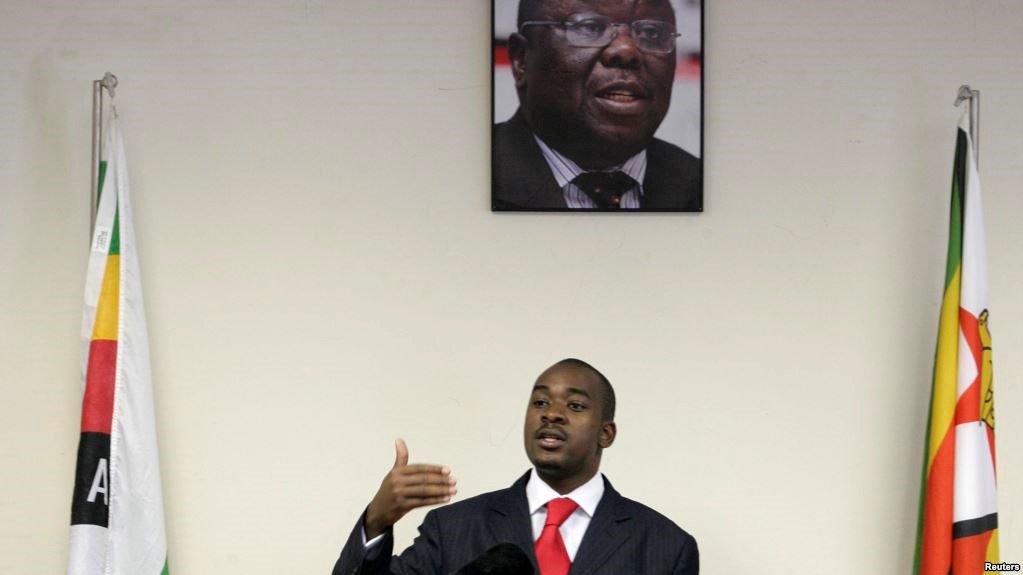
Hopes for Opposition Leaders as Hichilema is Sworn-in
Hopes for Opposition Leaders as Hichilema is Sworn-in
Later on Tuesday, Zambia’s new President, Hakainde Hichilema, will be sworn-in. His victory comes after a long political career that saw him fail in five previous bids to become president, Mr Hichilema was brutalised, tear-gassed and even detained for a traffic offence in 2017 that was deemed treasonous after his convoy failed to give way to the motorcade of outgoing President Edgar Lungu.
But in an extraordinary reversal of his fortunes, the man once declared an enemy of the state will be sworn in as Zambia’s seventh president after defeating Mr Lungu in their latest election duel on 12 August.
President Hichilema’s election victory is raising the hopes of his counterparts in other African states that they too can overcome state repression and one day rise to power.
“It’s massively inspirational,” said Tanzanian opposition leader Tundu Lissu who survived an assassination attempt in 2017 after being shot 16 times by people he believes were state agents.
“Zambians have showed us it can be done, no matter what they put us through, no matter the odds,” he added.
Mr Lissu lost last year’s election to the late President John Magufuli, which he alleges was rigged.
He later fled the country as security officers planned to arrest him.
Tundu Lissu was treated in Kenya following the attempt on his life in 2017
Some of his colleagues in the Chadema party, including chairman Freeman Mbowe, were briefly detained.
In May, Mr Mbowe was charged with terrorism-related offences. His supporters say he is facing “political persecution” for campaigning for a new constitution.
According to Tanzanian opposition politician Zitto Kabwe, only a new constitution that guarantees the independence of the electoral commission will ensure the opposition has a fair chance in the next poll.
“In Zambia, the institutions of democracy seem to be [more] responsive to people’s will than in many parts of Africa.
“The fact that the army, the police, the intelligence services, the electoral commission would allow the will of the people to be superior is a very strong message sent to the African continent,” he added.
‘No shortcut to winning’
The ripple effects of this message have spread far and wide, especially in Zambia’s southern neighbour, Zimbabwe, where it has sparked frenzied exchanges between the main opposition politician, Nelson Chamisa, and officials of the ruling Zanu-PF party, which has been in power since independence in 1980.
“Zimbabwe you are next,” the opposition leader tweeted, in a post congratulating Mr Hichilema.
President Emmerson Mnagangwa retorted: “What happened in Zambia will not happen here.”
His spokesperson even hinted that the army would not allow a transfer of power to the opposition.
Zimbabwe’s security forces are notorious for cracking down on the opposition
But a spokesperson for Mr Chamisa’s MDC-Alliance, Fadzayi Mahere, told the BBC that Mr Hichilema’s victory showed “that the fight for democracy can be won, that people can get together to remove a dictatorship”.
Ms Mahere added that there was “no shortcut to winning”.
She said Zimbabwe’s opposition would have to emulate Mr Hichilema’s United Party for National Development (UPND) party by: registering new voters, engaging the youth, protecting the vote from rigging and, most importantly, focusing on the key issues that people want addressed – fixing the battered economy, creating jobs for the many unemployed youths, and ending the culture of impunity in government.
It is a message Mmusi Maimane, the former South African opposition leader and a friend of Mr Hichilema, has also been pushing.
He egged on the MDC-Alliance, saying: “Zimbabwe, the example has been set.”
“The people of Zambia have rejected poverty and corruption. The people of Zambia have rejected arrogance and laziness. They have chosen a future worth working for,” Mr Maimane added in his message.
‘Presidents are servants’
In Kenya, supporters of veteran political leader Raila Odinga have also been heartened by Mr Hichilema’s win, as the 76-year-old politician prepares to run for the presidency for the fifth time in 2022.
Mr Odinga said the Zambian election result “reminds fellow Africans elsewhere that nothing is impossible”.
Mr Odinga is due to attend the inauguration, along with opposition politicians from other African states, in a clear sign that Mr Hichilema does not intend to abandon them now that he is in office.
Young Zambans threw their weight behind Hakainde Hichilema in the election
Aware of the interest the election has generated on the continent, UPND spokesperson Cornelius Mweetwa told the BBC there was “no secret strategy” behind their victory.
“This is a victory for Zambians. They voted in large numbers because they want us to deal with corruption, fix unemployment, end political violence and dictatorship,” Mr Mweetwa said.
Observers also credit Mr Hichilema, 59, for broadening his appeal amongst the youth, a key constituency that nicknamed him Bally – slang for father – because of his focus on issues they could relate to.
“We are not masters of the people, we are their servants,” Mr Hichilema tweeted after he was declared the poll winner.
The post sparked a lot of reaction from across the continent.
However, some cautioned that they have previously seen other new leaders portrayed as liberators only for them to turn into tormentors once in power.
Zambians and others across Africa, will be watching closely




Recent Comments